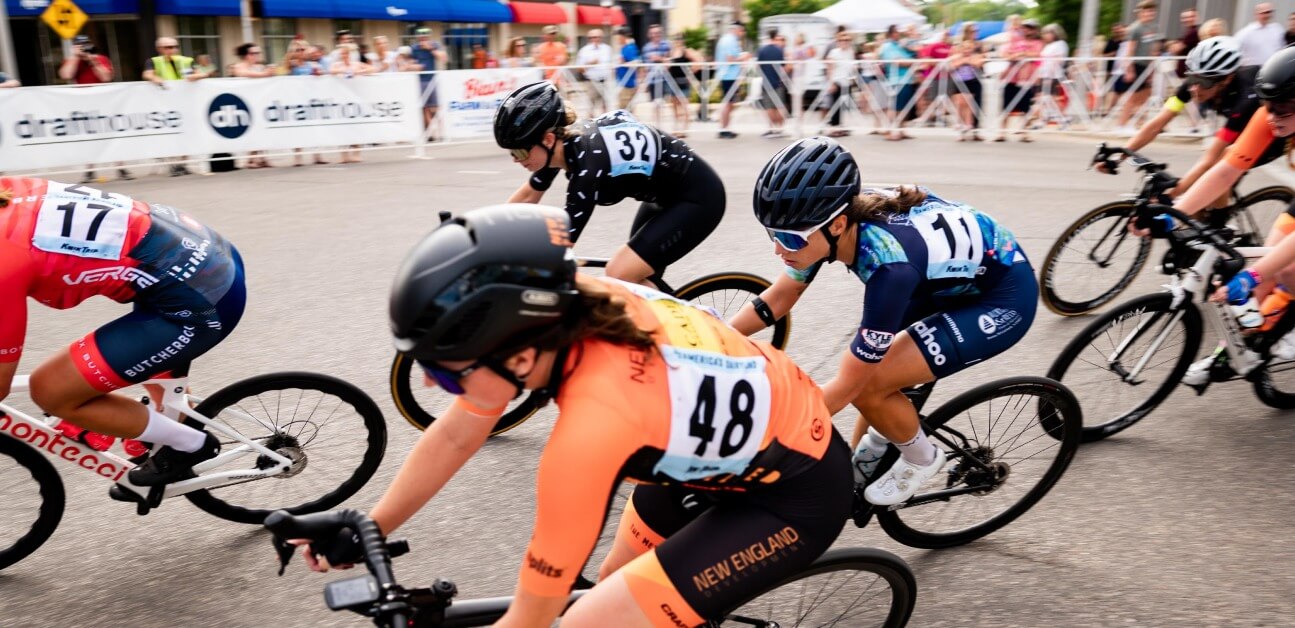5 Training Tips from the Pros

Professional cyclists are among the toughest athletes in the world. But you don’t have to train like a pro to learn from them. In fact, training like a professional might not be the best fit for you. These five training tips from pros can be used by anyone that wants to get faster.
1. Add Structure to Your Training
Sika Henry went from running on the track to becoming the first African-American woman to hold a professional license in triathlon. This journey began in 2017 when Sika decided she wanted to get serious about competing in triathlon. Sika was already a very strong runner, so becoming a pro triathlete meant she would need to become a better swimmer and a faster cyclist. Even though Sika’s progress faltered under a major setback, she continued to use TrainerRoad to improve her cycling fitness.
Sika feels like the addition of structured training, the use of a power meter, and a proper bike fit really helped her breakthrough on the cycling portion of her races. She suggests using a structured based approach to training for progressive improvement and to maximize your available training time.
2. Aim for Consistency
When Santa Cruz Bicycles’ and National Champion Keegan Swenson set the world record for Everesting, he didn’t change his training or prepare specifically for it. Granted, Keegan’s fitness was already at a high level, but that was due to consistent training. With stable and consistent training, he carried a high level of fitness into the record-breaking ride.
Keegan says consistent training helps you raise your fitness level to a point where you know what you’re capable of. If your event is a long one, consistent, structured training will help raise your FTP and muscular endurance. Consistency is the key to getting faster because it allows you to build and promote adaptation sustainably.
It also delivers a progressive training load over time that results in higher aerobic fitness. Additionally, it can help you prevent setbacks in your development, mental burnout, and fitness plateaus.
3. Train Sustainability
Five years ago, Cliff Pro Team’s Sofía Villafańe never thought she would be an Olympian, but years of hard work and dedication helped her achieve the massive and daunting goal of competing at the 2021 Tokyo Olympics. Sofia began racing in high school, but she thought a cycling career was out of reach as she started college. However, a fateful meeting in 2016 with a coach changed all of that.
The coach told her that she could make the Olympics with the right structure. By 2018, Sofia was the Argentina National Champion. However, she didn’t start training like a pro at first—sustainability was the key. She said, “Going from training like a cat 1 to training like an olympian takes time. All that matters is another year of getting stronger.”
Sustainable training also helps your consistency. Practically, this means selecting a training volume that best matches your experience and ability to recover. It might seem logical, but increasing volume and intensity can overwhelm your ability to recover, and may even lead to burnout or injury. By incorporating the concept of minimum effective dose in your training, you can find a healthy balance and ensure consistent improvement over the long term.
4. Nourish Your Body
When TrainerRoad’s Amber Pierce transitioned from collegiate swimmer to a professional cyclist, she felt the pressure to change her body to conform to an antiquated concept of what it should look like. In fact, she felt self-conscious during team presentations about being eight to ten inches taller than anyone else on the team. However, in the face of snide comments from team directors, Amber doubled down, focusing less on what her body looked like and emphasizing what it could do.
Amber’s advice is to accept your body and nourish it. She said, “I finally got to a point where I realized if I gave my body what it needs, nourish it, and fuel it for the efforts that I’m asking it to do, it’s smart enough optimize for what I need it to do.”
Your body is always trying to help. An adaptable and willing participant in training, your body is ready to respond to the training you do: to fine-tune itself into a faster and fitter machine. By nourishing yourself, you’re giving your body what it needs to do the things you ask of it.
5. Never Stop Learning
Erica Carney is one of the all-time best American criterium racers. In 2017, she won the Women’s Pro Criterium National Championship. Like all pros, she went from a beginner to the top level of competition. Along the way, she progressed gradually with a commitment to learning and growth. Even with years of experience, she views every race as an opportunity to learn and improve.
Erica believes that you should “never get to the point where you’re unwilling to learn. “She said, “One thing that helped me in my career was that I never let myself feel like I knew it all. There’s always a lesson to learn and something to do differently or better next time. Maybe it’s nutrition, position on the bike, or strategy. Study the weather, the road conditions, and the course. Be a student of the sport!”
So when things don’t go your way, identify what you did do right and focus on your success. Conversely, even in your victories, admit the things you could have improved. When your event or group ride is over, ask yourself what went well, what didn’t, and what you can do to improve.
